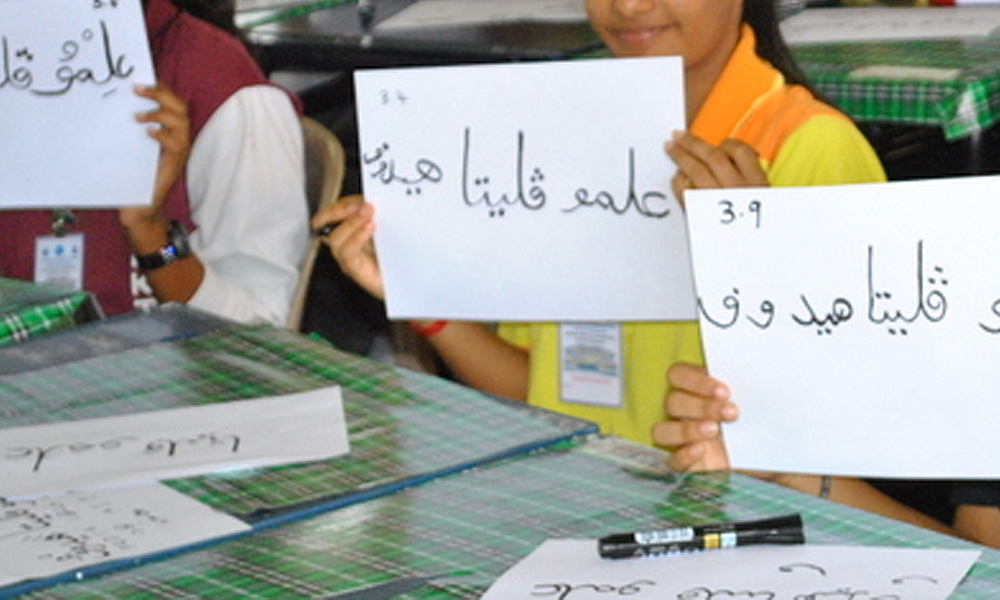
Several national laureates are urging Putrajaya to forge ahead with the introduction of khat art (Jawi calligraphy) lessons in the Year Four Bahasa Malaysia syllabus next year.
The laureates - Anwar Ridhwan, Baharuddin Zainal, Muhammad Haji Salleh and Zurinah Hassan - opined that Malaysians should embrace Jawi, which has been tied to the development of Bahasa Malaysia over centuries.
The four laureates had said this in a statement which was peppered with various Confucius sayings.
“Jawi was used by the Malays in Malay lands for hundreds of years for the purpose of writing literary works, knowledge and others. Therefore, we, as national laureates, feel it is appropriate for Malaysians to embrace Jawi with its long history of growth and development.
“We hope the Education Ministry continues with the idea of introducing Jawi writing in all schools in Malaysia, without backing down and without giving in to pressure from any quarter.
“We also hope (Chinese educationists group) Dong Zong cancels their petition and be more careful when making statements. Confucius says, ‘Settle your business fast and exercise caution in speech’ (min yu shi er shen yu yan),” their statement read.
The laureates urged all parties to avoid sensitive issues which could trigger anger and cause chaos.
Dong Zong, one of the most vocal critics to the government’s initiative, had started a petition opposing khat art lessons in vernacular schools as it alleged it was an Islamisation tactic.
This prompted Prime Minister Dr Mahathir Mohamad to label the group as “racist”, accusing it of not liking Malays and constantly opposing any government efforts to promote unity.
Using the analogy of a tree to describe the country’s education system, the four further questioned the heightened sensitivity over the inclusion of khat in schools which they pointed out merely formed a “twig”.
Instead, all parties should be focussed on the “tree”, which was to cultivate students’ intelligence.
They said this was so the country could produce “world-class” students with high civic values and who can understand and respect cultural and religious differences and who will work towards empowering a civilised Malaysian community.
The four laureates further called for the teaching of Bahasa Malaysia in vernacular schools, especially Chinese schools, be improved as it was below the expected standard.
They claimed this was due to a shortage of qualified teachers, lack of focus, unequal teaching material and methods in comparison to national schools as well as the “strange” condition requiring Malay-language teachers to first master Mandarin.
Aside from addressing these factors, the laureates said Bahasa Malaysia should be treated as an important subject in vernacular schools due to its status as the national language.
The government had initially stated it was proceeding to include six pages of lessons on khat in Year Four Bahasa Malaysia textbooks next year.
Khat is the calligraphic or written art form of Jawi, which was used to write Bahasa Malaysia before use of the Roman alphabet.
The move raised questions by various groups, including Dong Zong, as well as non-Malay communities who challenged the government’s motive for pushing the move without adequate stakeholder consultations.
This was despite Putrajaya’s insistence the lessons were about the appreciation of beautiful writing and not about learning Jawi and that students would not be assessed on it.
The Education Ministry later said the lessons were optional and revised lessons to just three pages in the Standard Four textbooks. - Mkini


No comments:
Post a Comment
Note: Only a member of this blog may post a comment.